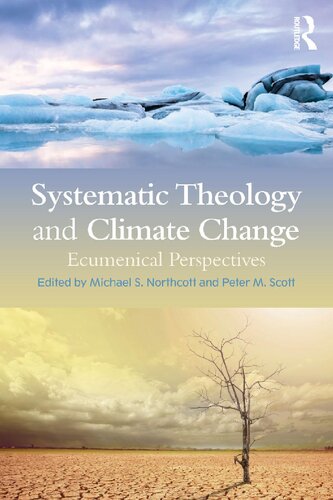

Most ebook files are in PDF format, so you can easily read them using various software such as Foxit Reader or directly on the Google Chrome browser.
Some ebook files are released by publishers in other formats such as .awz, .mobi, .epub, .fb2, etc. You may need to install specific software to read these formats on mobile/PC, such as Calibre.
Please read the tutorial at this link: https://ebookbell.com/faq
We offer FREE conversion to the popular formats you request; however, this may take some time. Therefore, right after payment, please email us, and we will try to provide the service as quickly as possible.
For some exceptional file formats or broken links (if any), please refrain from opening any disputes. Instead, email us first, and we will try to assist within a maximum of 6 hours.
EbookBell Team

4.8
54 reviewsBook Description
This book offers the first comprehensive systematic theological reflection on arguably the most serious issue facing humanity and other creatures today. Responding to climate change is often left to scientists, policy makers and activists, but what understanding does theology have to offer? In this collection, the authors demonstrate that there is vital cultural and intellectual work for theologians to perform in responding to climate science and in commending a habitable way forward. Written from a range of denominations and traditions yet with ecumenical intent, the authors explore key Christian doctrines and engage with some of the profound issues raised by climate change. Key questions considered include: What may be said about the goodness of creation in the face of anthropogenic climate change? And how does theology handle a projected future without the human? The volume provides students and scholars with fascinating theological insight into the complexity of climate change.
Table of Contents
1. Introduction Michael S. Northcott & Peter M. Scott
2. Triune God Timothy Gorringe
3. Christology Niels Henrik Gregersen
4. Spirit Michael S. Northcott
5. Creation Celia Deane-Drummond
6. Creatures Rachel Muers
7. Humanity Peter M. Scott
8. Sin and Salvation Neil Messer
9. Church Tamara Grdzelidze
10. Eschatology Stefan Skrimshire
Editor(s)
Michael S. Northcott is Professor of Ethics in the School of Divinity at the University of Edinburgh, UK.
Peter M. Scott is Samuel Ferguson Professor of Applied Theology and Director of the Lincoln Theological Institute at the University of Manchester, UK.